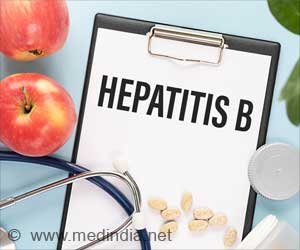Kolkata Municipal Corporation Screens Pregnant Women

The Kolkata Municipal Corporation (KMC) has taken a proactive step towards preventing the transmission of hepatitis B from mother to child. In their clinics, the KMC has started conducting hepatitis B tests on all pregnant women seeking treatment. The primary objective behind this screening is to identify and address cases of hepatitis B to curb the spread of the virus.
National Viral Hepatitis Control Program’s Ambitious Target
The National Viral Hepatitis Control Program has set a goal to eliminate viral hepatitis by 2030 (1✔ ✔Trusted Source
National Viral Hepatitis Control Program
Go to source
) . With this program in place, the state health department aims to combat the systemic infection that primarily affects the liver. Viral hepatitis encompasses five different viral agents: hepatitis A, B, C, D, and E.
Focus on Hepatitis B: Risks and Screening Initiatives
Among the various types of viral hepatitis, hepatitis B poses the most significant concern due to its potential to cause liver cirrhosis and cancer (2✔ ✔Trusted Source
Progress Toward the Elimination of Mother-to-Child Transmission of Hepatitis B Virus – Worldwide, 2016-2021
Go to source
) . In light of this, the KMC has prioritized screening pregnant women for hepatitis B. This initial step will eventually be extended to a broader population, as highlighted by a senior doctor in the KMC. The screening process commenced approximately two weeks ago and aims to identify cases early on.
Immediate Steps for Hepatitis B Positive Cases
Once a pregnant woman tests positive for hepatitis B, she is promptly linked to a viral hepatitis treatment center. In Kolkata, these treatment centers are located at the School of Tropical Medicine, RG Kar Medical College and Hospital, Calcutta National Medical College and Hospital, and SSKM Hospital. The KMC ensures close monitoring of these women, and their deliveries are planned at these specialized centers to provide optimal care.
Protecting the Newborns Against Hepatitis B: Immunization and Subsequent Doses
Newborns born to mothers with hepatitis B receive a hepatitis B birth dose within 24 hours of birth at the hospital. Subsequent shots are administered during the 10th, 14th, and 16th weeks to complete the immunization process. It is important to note that the hepatitis B vaccine is a part of India’s universal immunization program, entitling every child to receive doses free of charge from any government vaccine administration center.
Children born to mothers who test positive for hepatitis B receive additional protection through the administration of hepatitis B immunoglobulin. This immediate boost to their immunity helps guard against the virus. The administration of immunoglobulin is specifically for children born to mothers with hepatitis B.
Transmission Channels and Risk Factors
Hepatitis B can be transmitted through various means, including sexual contact with an infected partner, sharing needles during injection drug use, birth to an infected mother, and contact with the blood or open sores of an infected person. Awareness of these transmission channels is crucial in preventing the spread of the virus.
In conclusion, the Kolkata Municipal Corporation’s proactive screening of pregnant women for hepatitis B demonstrates its commitment to preventing transmission and protecting the health of both mothers and their newborns. By providing timely interventions, such as vaccination and immunoglobulin administration, the KMC aims to ensure the well-being of the community.
Advertisement
References:
- National Viral Hepatitis Control Program – (https://nvhcp.mohfw.gov.in/about_us)
- Progress Toward the Elimination of Mother-to-Child Transmission of Hepatitis B Virus – Worldwide, 2016-2021 – (https://www.cdc.gov/mmwr/volumes/71/wr/mm7130a2.htm)
Source: Medindia
Source link
#Kolkata #Municipal #Corporation #Screens #Pregnant #Women



